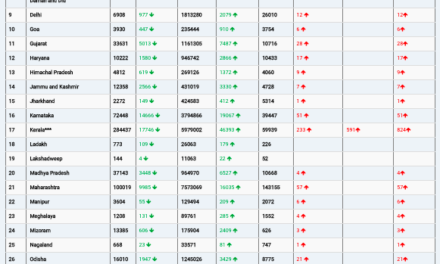Date: February 1, 2024
A groundbreaking long-term study published in the journal Gut indicates that adopting a high-quality diet during the first year of life may significantly lower the subsequent risk of developing inflammatory bowel disease (IBD). The research emphasizes the potential protective effects of consuming ample fish and vegetables while minimizing the intake of sugar-sweetened drinks.
Cases of IBD, encompassing conditions like Crohn’s disease and ulcerative colitis, have been on the rise globally. While dietary patterns are suspected to contribute to this trend by influencing the gut microbiome, there is limited research on the influence of early childhood diets on IBD risk.
To address this gap, researchers analyzed data from the All Babies in Southeast Sweden study (ABIS) and The Norwegian Mother, Father, and Child Cohort Study (MoBa). The study included 81,280 one-year-olds, with dietary information obtained from parents through surveys. The quality of the diet was assessed based on the intake of meat, fish, fruits, vegetables, dairy, sweets, snacks, and drinks, using a modified Healthy Eating Index scoring system.
Over an average follow-up period of 21 years, 307 children were diagnosed with IBD. The findings revealed that a medium to high-quality diet at age 1 was associated with a 25% lower overall risk of IBD compared to a low-quality diet. Notably, high fish intake correlated with a 54% lower risk of ulcerative colitis, while higher vegetable intake was linked to a reduced risk of IBD. Conversely, the consumption of sugar-sweetened drinks was associated with a 42% higher risk of IBD.
The study, while observational, offers intriguing insights into the potential impact of early-life diet on IBD risk. The researchers suggest that the findings are consistent with the hypothesis that early-life diet, possibly affecting the gut microbiome, may influence IBD development.
In a linked editorial, Dr. Ashwin Ananthakrishnan of Massachusetts General Hospital, Boston, highlights the challenges of accurately measuring food intake in infants. However, he suggests that it might be time to consider recommending a ‘preventive’ diet, incorporating dietary patterns associated with a lower risk of IBD, such as adequate dietary fiber, fish intake, minimized sugar-sweetened beverages, and a preference for fresh over processed foods.
While the study doesn’t establish a causal link, the potential benefits of a preventive diet could extend beyond reducing IBD risk, supporting overall health in early life.
Note: This article is based on observational research, and further studies are needed to establish a causal relationship between early-life diet and IBD risk.










